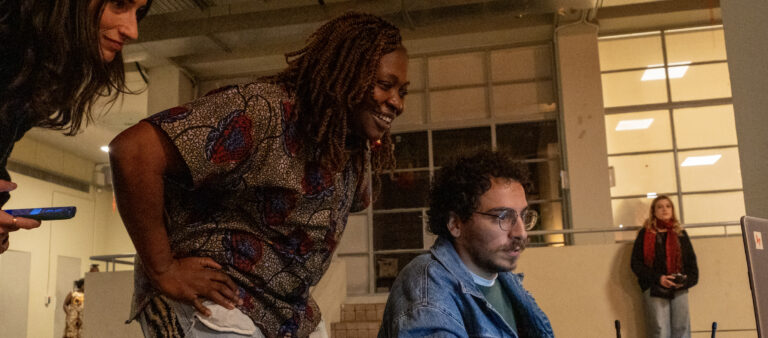With the 60-day ceasefire between Lebanon and the Israeli enemy coming to an end—and then being renewed—it is worth reflecting on the challenges Lebanon faced during this war, in order to build on these lessons for future crises.
The massive displacement from the Bekaa and South Lebanon during the recent conflict placed an immense burden on the Municipal Police and security forces. Municipalities suddenly found themselves carrying heavy responsibilities—not only caring for displaced people, but also ensuring their safety and maintaining stability in the areas and facilities under their jurisdiction.
It quickly became clear that the sheer number of displaced people created growing pressure on host areas, especially on municipalities. Disputes sometimes broke out among displaced families over priority access to public facilities, such as schools, requiring police intervention to manage crowds. During the distribution of food and medical aid, tensions occasionally flared due to poor organization or perceived unfairness. Reports of theft—both of aid supplies and of displaced people’s belongings—further heightened tensions with local residents, already strained by the pressure on resources and services.
Internal disputes also emerged within families, leading to multiple interventions by the police. In one incident at a school in the Jezzine area, police had to defuse a family quarrel that had escalated into a physical fight, alarming other displaced residents.
During a visit to displacement centers in September 2024, Sarah Abboud, a displaced woman from South Lebanon now living in a center in Dhour El Choueir, told Silat Wassel:
“I reported my wallet stolen to the Municipal Police. They checked surveillance cameras installed in the residential areas for the displaced, and quickly recovered it. We appreciate their efforts to keep us safe.”
In Nabatieh, local resident Yehya Sarour told Silat Wassel:
“A food aid distribution here turned into a fight between two groups of displaced people over unfair distribution. The Municipal Police intervened quickly to manage the crowd and break up the dispute, preventing the situation from escalating.”
Multiple Roles… and the Need for Coordination with Security Forces
According to figures from the International Organization for Migration (IOM), between October 10 and November 21, 2023, the number of displaced people reached 55,491. Over three months, more than 82,000 people fled South Lebanon, with an 8% increase recorded between January 2 and January 9 of this year.
The report noted that 93% of the displaced came from three border districts: Bint Jbeil (48%), Marjeyoun (33%), and Tyre (12%). Their main destinations were Tyre District (31%), Nabatieh (17%), Saida (15%), Baabda (9%), and Beirut (7%), with the remainder spread across other areas.

Amid these circumstances, Jean Fakhry, lawyer and head of the Deir El Ahmar Union of Municipalities, told Silat Wassel: Highlighting the importance of municipalities’ role in handling the displacement crisis, the municipality of Deir El Ahmar adopted a proactive preparedness approach, equipping its union police force with 44 volunteers after completing the necessary legal procedures.
Fakhri emphasized the importance of coordination between the Municipal Police and national security forces as a key factor in ensuring safety. When municipal officers encounter legal violations or wanted individuals, they immediately hand them over to the relevant authorities, such as the gendarmerie or army intelligence. He noted that the Municipal Police helped manage shelter centers, organized preventive patrols, and carried out rapid evacuations in response to direct threats.
From his side, George Rizk, a member of the Municipal Police, explained: Coordination with the Internal Security Forces (ISF) also boosts the ability to face security challenges. “We work side by side with the army and the ISF,” he said, “sharing information and conducting joint patrols to ensure safety. This ongoing cooperation helps maintain stability despite mounting challenges.”
Limited Resources Await Support
Despite limited human resources—some municipalities rely on only a small number of officers who must handle traffic control, enforce building regulations, and assist security forces with cases such as theft or petty crimes—municipalities are calling for expanded powers to strengthen their operational effectiveness.
In this context, Samir, a member of the ISF who declined to give his full name for security reasons, stressed the crucial role of the Municipal Police in maintaining order in areas with high concentrations of displaced people.
To this end, the resources and training of Municipal Police personnel have been enhanced through EU- and UNDP-supported programs. Training at the ISF Academy has included weapons handling and martial arts, and some municipalities have received modern equipment such as wireless communication devices to improve operational efficiency.
Since 2015, the Ministry of Interior and Municipalities has been working with international partners to develop municipal operations through a unified regulatory framework aimed at raising the professionalism of the Municipal Police and enhancing cooperation with other security agencies. This reflects a sustained effort to improve the performance of municipal forces amid mounting challenges.
Funding Challenges
Despite these efforts, many municipalities still rely on their own resources to purchase equipment, including weapons licensed by the Ministry of Interior. Yet such individual initiatives remain insufficient to close the gap between available resources and the growing demands placed on the Municipal Police, limiting their ability to respond to escalating security challenges.
Municipal leaders face key obstacles, most notably the lack of funding and legal frameworks that would allow Municipal Police to carry light weapons under defined regulations—constraints that undermine their ability to respond quickly in emergencies.
Despite ongoing efforts to strengthen the role of the Municipal Police in Lebanon, many municipalities still rely on their own resources to purchase equipment, including weapons licensed by the Ministry of Interior.
In this context, Jean Fakhry, lawyer and head of the Deir El Ahmar Union of Municipalities, stressed that funding shortages have exacerbated the challenges. He called for sustainable financial support through increased allocations from the Independent Municipal Fund, which would enable the development and training of Municipal Police forces. He noted that, despite these limitations, support from the Lebanese diaspora has played a crucial role in providing essential needs such as clothing, fuel, food, and heating.
Additional funding, Fakhry explained, would allow the Municipal Police to acquire essential equipment and train in critical tasks such as filing official reports and handling emergency situations—particularly at night—thereby strengthening their capacity to address ongoing security challenges.
Powers… Between Municipal Police and Security Forces
Under the Municipal Police regulations, their authority is limited to their geographic jurisdiction. Their responsibilities include intervening in matters of public safety, order, and health; handling incidents and minor offenses such as traffic control, building inspections, dispute resolution, and even responding to certain crimes like theft. However, carrying out these duties often requires coordination with the Internal Security Forces (ISF) or the gendarmerie, especially in cases involving investigations or arrests, where municipal officers have no independent authority.
In contrast, central security forces such as the army and the ISF focus on major security threats, including combating serious crimes like theft and kidnapping, and conducting patrols in high-risk areas such as Beirut and Saida. Meanwhile, Municipal Police remain more visible in day-to-day local duties, including maintaining order in areas experiencing population surges due to displacement.
With displacement numbers rising, the need for close coordination between Municipal Police and central security forces—particularly the ISF and gendarmerie—has become urgent, especially in areas experiencing high influxes or deteriorating security conditions. Calls have grown to expand municipal police powers and provide them with the necessary support to play a larger role in public safety, given their ability to respond quickly and their deep knowledge of local communities.
In this context, Fakhry explains: The Municipal Police carry out a wide range of duties, from traffic control to overseeing shelter centers, providing immediate relief, and managing parking. They maintain a constant presence in shelters to ensure security and services for displaced people.
“Despite these powers,” one officer noted, “the Municipal Police’s ability to intervene effectively depends on their limited resources. Many municipalities must self-fund their equipment purchases, including licensed weapons. This underscores the need to strengthen coordination with central security forces to ensure a comprehensive response to crises.”
Given all this, the Municipal Police have played a pivotal role in maintaining local security and managing displacement, acting as an effective shield for public safety. Within the scope of their legal authority, they have helped organize the movement of displaced people, mitigate tensions with host communities, and resolve disputes. Their coordination with central security agencies, such as the ISF and the gendarmerie, has been vital in ensuring rapid responses to Lebanon’s displacement crisis.
Still, the worsening security situation during the displacement period raises a pressing question: Is the current framework of municipal police powers sufficient, or does reality demand expanded authority to meet today’s—and tomorrow’s—challenges?
This report is published as part of the training program “Principles of Media Coverage of Security Issues in Lebanon”, organized by the Maharat Foundation with support from the Geneva Centre for Security Sector Governance (DCAF). The content does not necessarily reflect the views of DCAF.




















